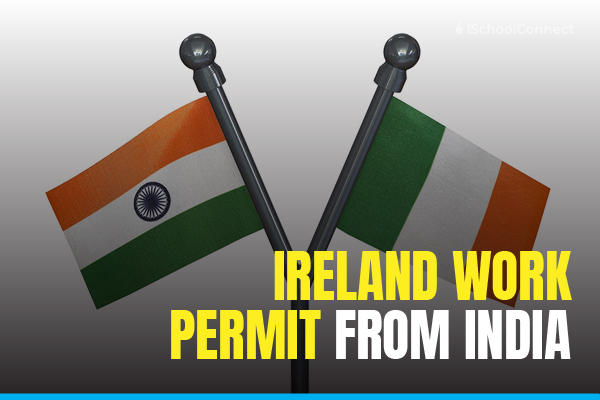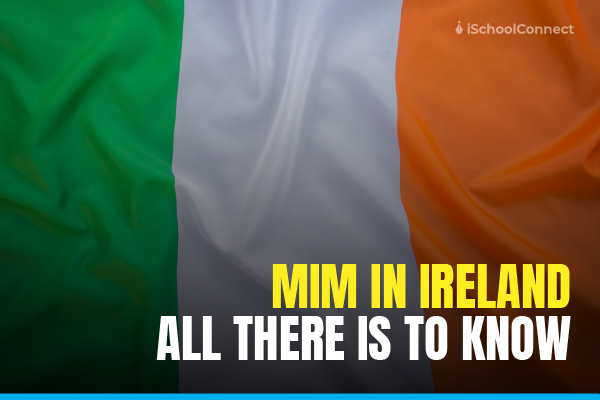Table of Contents
Dublin is a vibrant city that seamlessly blends its rich cultural heritage with modern cosmopolitanism. It is known for its history, literary traditions, and lively cultural scene. The city is home to some of Europe’s most impressive Georgian architecture, with stunning buildings such as Dublin Castle and Trinity College. However, living in Dublin can also come with a high cost of living. Various factors, including housing, transportation, food, and entertainment, contribute to Dublin’s high cost of living. If you choose to study in this city, understanding all of these factors is essential for budgeting and planning.
The average cost of living in Dublin, Ireland
The average cost of living in Dublin, Ireland, greatly depends on where you live. Since Dublin is one of the largest cities in the world, the cost of living is comparable to other cities like London, Paris, and Sweden. Dublin boasts the country’s highest monthly rental average of €1,391. However, this would be a bit higher if you opt to live in central Dublin or South Dublin.
In general, the average cost of living in Dublin depends on various factors. We have analyzed each section of expenses to help you compare the cost of living in Dublin to that in your own country.
- The average cost of living in Dublin for a family of four is €3253.38 (without rent).
- The average cost of living in Dublin for a single person is €918.00 (without rent).
University tuition expenses in Dublin
For Non-EU students
Students who are not from EU or EEA countries must pay full tuition costs. This can vary depending upon the course length (2-4 years), specialization, and degree (bachelor’s or master’s).
Fees at Dublin City University, the primary university in Dublin, vary from €12,600 to €18,000 for undergraduate courses. Almost all engineering and computing courses’ tuition fees are around €15,000.
On the other hand, fees for University College Dublin vary from €16,800 to €25,000 for undergraduate courses. However, a cheaper option is TU Dublin which charges between €11,650 and €21,886 for all courses.
For Irish, EU, and EEA students

Irish and EU citizens can receive tuition fees funding from Ireland’s Higher Education Authority. The funding can cover all tuition expenses. However, to be eligible for this, you-
- Must be a resident of an EU state for at least 3-5 years before applying.
- Must not have previously attended an undergraduate course.
- Will be studying full-time for at least two years.
- Nationality criteria include at least one of the following-
- You are a resident of the EU, EEA, or Switzerland.
- Your family member is a member of the EU nation
- You have refugee status in Ireland.
- Your immediate family member has refugee status in Ireland, or you have permission to live in Ireland on a humanitarian basis.
Top universities in Dublin
If you have made up your mind to study in Dublin, here are some top universities you can apply to-
- Dublin City University
- University College Dublin
- Trinity College Dublin
- Technological University Dublin
- Maynooth University
- University of Limerick
- Royal College of Surgeons in Ireland
- National College of Ireland
- Dublin Institute of Technology
- Griffith College
- Dublin business school
The average cost of living for students in Dublin

The average cost of living in Dublin varies depending upon where you live. As mentioned above, many factors affect the total cost of living in Dublin. These factors are discussed in detail in the following section.
Accommodation costs
Accommodation costs are higher in South Dublin and Dublin city center. The accommodation cost in South Dublin is €2,156 per month while in the city center it is €2,016 per month. A one-bedroom apartment in the city costs €1,700 per month while a two-bedroom apartment costs €2,000.
Students can also look at shared houses where they get a private bedroom. The accommodation cost for such an arrangement is usually €650 per month. However, if you are ready to share a bedroom with another student, the rental room will cost €400 per month. The lowest monthly accommodation costs are in Donegal at €628 per month, Leitrim at €577, and Roscommon at €674 per month.
Food cost
Food costs in Dublin can vary depending on the type of food and where it is purchased. Generally, eating out at restaurants can be quite expensive, especially in the city Centre. However, there are many affordable options for those on a budget, such as cafes, food trucks, and market stalls. Discount supermarkets such as Lidl and Aldi can offer good value for money, while specialty stores and organic markets may be more expensive.
It is estimated that a meal at a restaurant costs between €15 and €70, depending upon which type of restaurant you are eating in. On average, food costs between €1,500 to €6,000 per month, depending upon your food habits.
- The average cost of food and gas in Dublin-
- One cappuccino (regular): €3.62
- Meal at an inexpensive restaurant: €15 (per person, one course)
- One liter of gas: €1.81
Utility costs
Utility costs in Dublin can vary depending on factors such as the size of the property and the number of occupants. Generally, electricity and gas are the two main utilities that households need to budget for in Dublin. The cost of electricity and gas is often calculated based on usage and can be paid on a monthly or quarterly basis. Water charges are also applicable in Dublin, and households are charged based on the amount of water used.
Most apartments provide basic amenities, including heating, air conditioning, water, and garbage disposal. The utility bill for an 85-square-meter apartment offering these amenities is around €180. Students can also buy WiFi, cable, or ADSL at €52.71 per month.
Cost of transportation
Dublin has excellent transportation facilities. While taxis charge €1.78 per kilometer, students can opt for local transport. A one-way ticket for any local transport starts at €2.80. However, students can opt for a monthly pass for citywide transportation at €128.50 per month.
Additional expenses in Dublin, Ireland
- Health insurance costs around €150 to €180 for all individuals per year.
- Social and recreational activities are expensive in Dublin. A membership to a gym usually costs €45.00 per month.
- One ticket for a cinema is €12.00.
Key takeaways
- Dublin is becoming one of the most sought-after destinations for international students. The beauty of this place and the top universities attract people from all around the world.
- Before moving to this place, it is important to learn about the cost of living and other expenses along with the top universities.
- Leisure and recreational activities are expensive, and as a result, the average cost of living in Dublin increases. However, students can save by opting to live in less expensive areas and farther from the city center.
We hope you enjoyed reading this blog. If you have questions about the top universities or living in Dublin, reach out to us or drop a comment.
Liked this blog? Read next: Cost of living in Ireland | A quick guide to everything you must know!
FAQs
Q1. Are international students provided with any scholarships?
Answer- All universities in Dublin have scholarships for international students. However, the student needs to pass the criteria set by the university to get the scholarship.
Q2. How long can an international student stay in Dublin after course completion?
Answer- Students who complete an undergraduate degree can stay back for one year, while those who complete a postgraduate degree can stay for two years.
Q3. What salary do you need to live in Dublin alone?
Answer- You would need a minimum salary of around €50-60k to live alone in Dublin.






